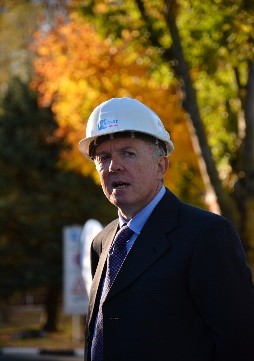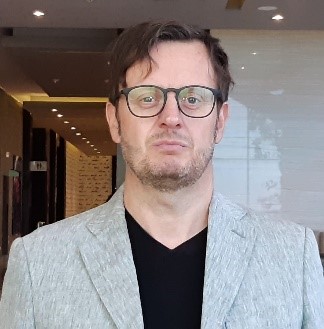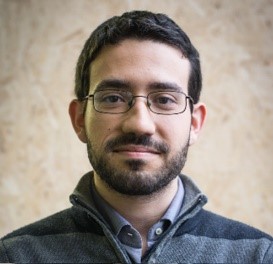- ecolefins@certh.gr
- 6th km Charilaou-Thermi Rd, Thessaloniki, Greece
POLITO
POLITECNICO DI TORINO (POLITO)
POLITECNICO DI TORINO (POLITO) was founded 150 years ago and represents a leading public university, in Italy and in Europe, in technical‐scientific teaching and research. There are currently 26000 students on more than 115 courses. Staff members are more than 900 (professors and researchers), plus about 1000 administrative and technical staff. Politecnico di Torino is strictly connected with the enterprise system and has a long experience as partner in common research projects with other European and international centres. Almost 700 research project contracts in collaboration with industries and government‐funded institutions provide an income of around 400 million Euros each year.
In an interdisciplinary perspective, POLITO is able to combine different engineering disciplines (energy, materials science, chemical plants and systems analysis) to promote the development of new technologies in the energy sector, with particular focus on hydrogen technologies. POLITO has extensive experience in solid oxide cell projects with specific expertise in: design, synthesis and characterization of glass-based sealants, electrophoretic deposition of ceramic coatings on SOC metal interconnects, differential thermal analysis, bonding of ceramics to metals and metals to metals, mechanical characterization of joined components, experimental characterization of single cells, SRU, stack, BoP components, complete systems, modeling of multiphysical processes (transport, kinetics), complex innovative systems (thermochemical and electrochemical plants) applied to energy: design, experimental characterization, modeling from the single technology to the complete process.
At the EU level, in the topic Politecnico was Coordinator of the projects SOFCOM (THEME SP1‐JTI‐FCH.2010.3.4) and DEMOSOFC (Topic: FCH‐02.11‐2014) for the demonstration of SOFC systems at the level of proof-of-concept and large size plant. In the project ICO2CHEM (Topic: SPIRE-08-2017) Politecnico contributed to the energy integration and process modelling of a CO2-to-chemical process, while in the BRISK2 project (Topic: INFRAIA-01-2016-2017) Politecnico developed SOC modelling and cell testing. In the projects NewSOC (Topic: FCH-02-6-2019) and DB-SOFC (ERANETMED), Politecnico investigated innovative SOC designs, in the latter project focusing on CFD modelling at cell and short-stack level.
POLITO is Partner of ECOLEFINS project and it will be actively involved in WP1 (CFD model development and simulations of the ci-EMR cells/stacks), WP4 (Validation of the ci-EMRs), WP5 (Process modelling).

Prof. Massimo Santarelli
Mechanical Engineer
Prof. Massimo Santarelli (Male, Mechanical Engineer, Ph.D. in Thermodynamics and Heat Transfer), PI of POLITO in ECOLEFINS, Full Professor of Thermodynamics and Heat Transmission, Energy Department, Turin Polytechnic. Author of around 310 papers in international journals (h-index 54). The main research activity is related to the topic of complex innovative systems (thermochemical and electrochemical processes) applied to the energy sector. Coordinator of the STEPS laboratory (Synergies of Thermochemical and Electrochemical Electrical Systems) of the Politecnico di Torino, and of the CO2 Circle Lab of the Politecnico di Torino. Member of the Energy Center initiative of the Turin Polytechnic. Coordinator of EU projects SOFCOM (FCH1-JU Call 2010), DEMOSOFC (FCH2-JU Call 2014), REMOTE (FCH2-JU Call 2017). Partner in EU projects (ELECTROLIFE, IMAGHYNE, H2 ACADEMY, H2SHIFT, HYDRA, CRAVE-H2, GREENSKILLS4H2, KICSTARTH2, TULIPS, BEST4Hy, SUBLIME, ICO2CHEM, COMSOS, TEACHY, ENEFIELD, ENFICA-FC, BRISK II, SELECT-CD, Explore Energy, Virtual Hub, MARS-EV). Coordinator of several national projects. Member for Italy of ISO / TC 197 “Hydrogen Technologies” and of IEC-TC 105 “Fuel Cells”.
Prof. Federico Smeacetto
Professor of Materials Science and Technology
Prof. Federico Smeacetto, Ph.D. is a Full Professor of Materials Science and Technology at Politecnico di Torino, Italy. His research interests currently deal with required engineering solutions for designing, developing, and characterizing functional glass-ceramics and ceramics as joining and coating materials for energy conversion and storage. Post-doc researcher at Imperial College, London UK (2006), University of Hertfordshire, Hatfield UK (2008) and AGH-UST, Krakow PL (2010).
He is supervising a research group of 6+ post-doc researchers and PhDs; he is a member of the Board of the Ph.D. School of Materials Science and Technology at the Politecnico di Torino and chair (2013-present) of the Advanced Glass and Glass-based Components course.
Principal investigator of EU-funded projects and contracts mainly related to hydrogen technologies: NewSOC, BEST4HY, HyP3D, and 24_7 ZEN.
He was recently awarded the prestigious Acers Global Ambassador from The American Ceramic Society, “For his outstanding leadership and services to the Society in the division, conferences, and publications along with his dedicated global outreach and collaboration efforts”.


Prof. Sonia Fiorilli
Associate Professor of Chemistry
Prof. Sonia Fiorilli (female, degree in Industrial Chemistry, PhD in Material Science and Technology). She is Associate Professor of Chemistry at the Department of Applied Science and Technology of Politecnico di Torino. She has co-authored 114 papers in high-impact peer-reviewed journals (h index 34).
She has consolidated expertise in the synthesis and advanced surface characterization of ceramics and composites for energy, environmental and biomedical sectors. More recently, her research activity focuses on the development of sustainable processes based on 3D printing and electrospinning.
She was a visiting researcher at the School of Chemistry of St. Andrew (Scotland), at Ecole Nationale Supérior de Chemie, Montpellier, France, at the Green Chemistry Centre of Excellence, University of York (UK) and a visiting Professor at the University di Laval (Quebec), Canada.
She is/was involved as Principal Investigator or scientific responsible for her research unit in several EU-funded collaborative projects related to the development of advanced functional (bio)materials, sustainable manufacturing processes and recycling of critical raw materials.
She has been recently selected to receive the 2024 Jubilee Global Diversity Award by the Engineering Ceramics Division of the American Ceramic Society.
Dr. Domenico Ferrero
Energy and Nuclear Engineer
Dr. Domenico Ferrero (Energy and Nuclear Engineer, Ph.D. in Energetics). Assistant Professor at the Energy Department of Politecnico di Torino. Member of the STEPS group (Synergies of Electric Thermochemical and Electrochemical Systems) and of the CO2 Circle Lab of the Politecnico di Torino, his research activity is linked to the topic of electrochemical systems, electrolysers and Power-to-Gas / Power systems and thermochemical cycles. Coordinator of EU project REAL2.0 (NESOI project) and PI of Politecnico di Torino in the national project MULTITOOL (PRIN2022). Partner in European projects (REMOTE, TeacHy, Best4Hy, ELECTROLIFE, H2 ACADEMY, H2SHIFT, CRAVE-H2, KICSTARTH2, TULIPS, GreenSkills4H2) and author of more than 50 publications in international journals and book chapters. Academic collaborator in industrial consultancy contracts, and speaker at numerous international conferences and workshops, reviewer of international journals and book editor.


Dr. Simone Anelli
MSCA fellow
Dr. Simone Anelli (Ph.D. in materials science) is a MSCA fellow at Politecnico di Torino focused on 3D printing of PCEC cells via VAT polymerization techniques and development of glass-ceramic sealants for assembly of PCEC cells. Simone did his PhD at the Catalan Institute for Energy Research (IREC) and with the Universitat Autonoma de Barcelona (UAB) in the Nanoionics and Fuel Cells group. His work at IREC was focused on the utilization of hybrid additive manufacturing techniques (e.g., robocasting and inkjet printing) to produce SOEC devices. Moreover, he was dedicated to the development of nanocomposites for electrodes of SOEC devices. He did his first postdoc at IREC, in the Nanoionics and Fuel Cell group, on the formulation of slurries with innovative materials for 3D printing by Stereolithography (SLA). At POLITO he joined the Glasses, ceramics, and composites group (GLANCE) at the Department of Applied Science and Technology (DISAT) to work as a post-Doc focused on the deposition of glass-ceramic sealants for energy conversion devices (i.e., high temperature electrolysers) and the development of a pilot plant for the recycling and reutilization of functional ceramics materials for SOFCs in the frame of the BEST4Hy project.
